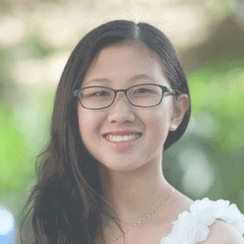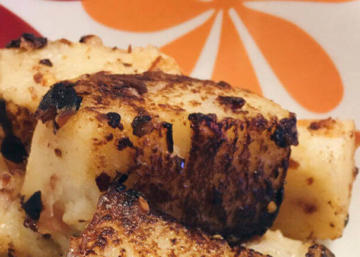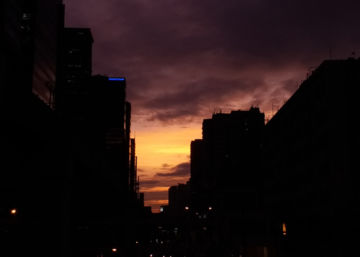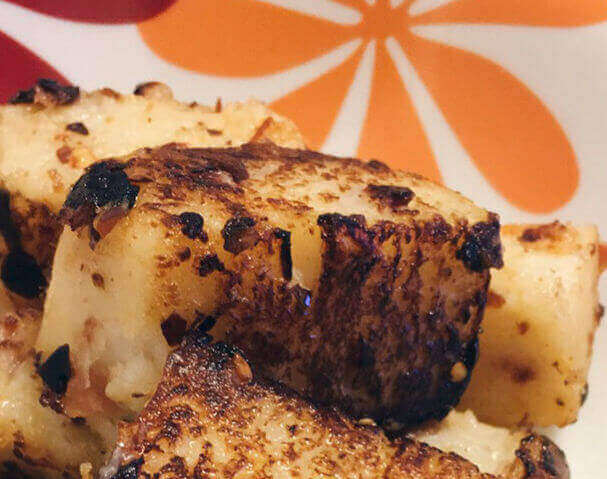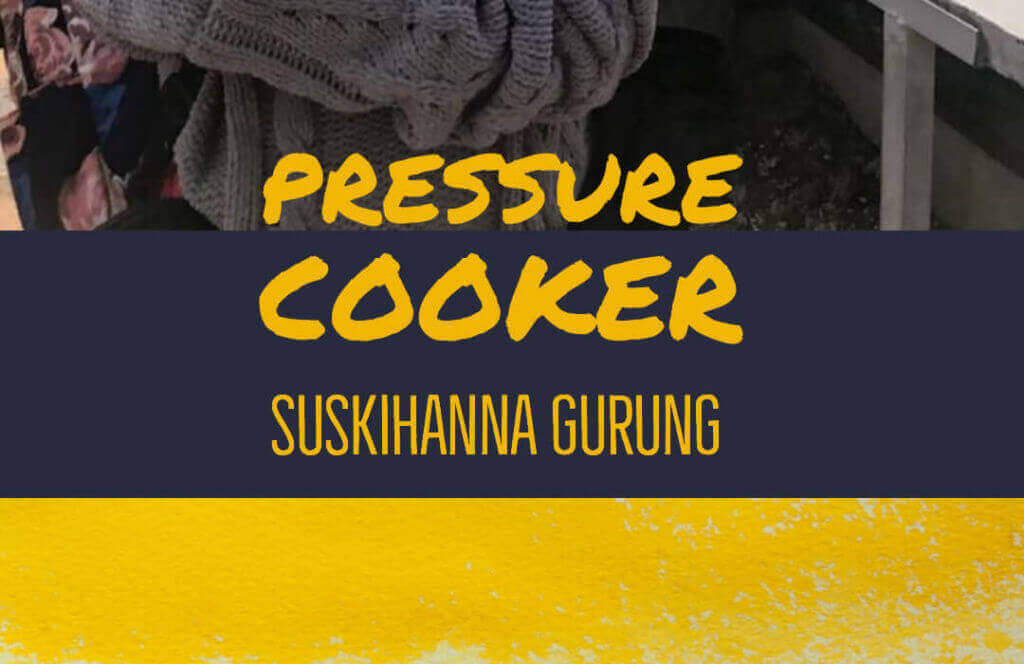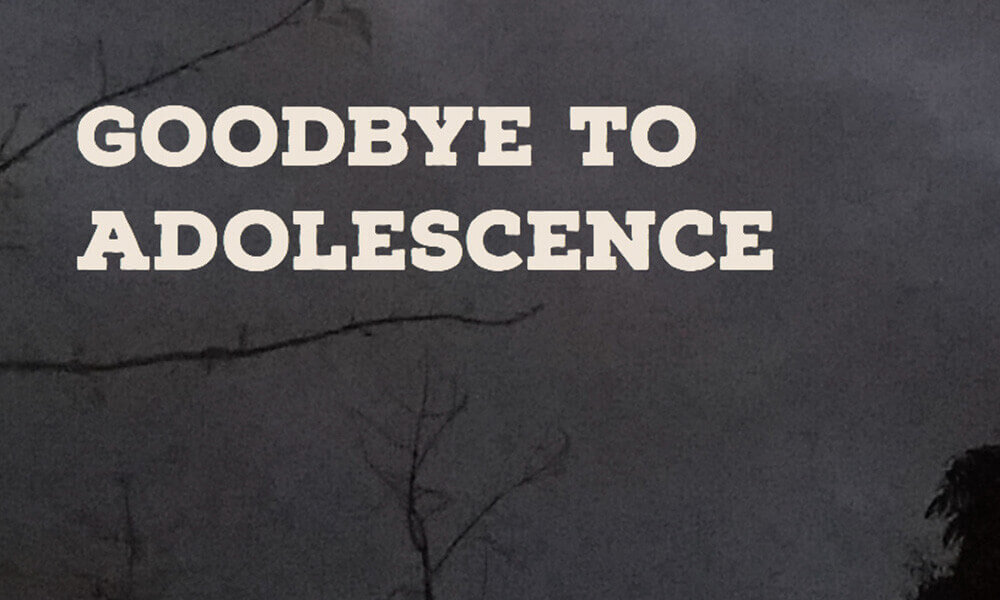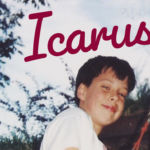
Hyacinth is a lonely high school student who lives to please others. One day, while doing a “favor” for a “friend,” she becomes involved in a severe car accident. Distressed by her resultant memory loss, and by her broken relationships at home and at school, she escapes into the woods. There, she meets a strange boy named Peter. Hyacinth believes she has found a friend. But Peter is not all as he seems: he has his own secrets—and one may be the key to Hyacinth’s missing memories.
Audio excerpt
Cinthia had been to the dry cleaners to pick up an evening gown. It was a racy thing with too little strap, too many opportunities for skin—not hers, but McKinley’s.
The dress went carefully into the passenger’s side of her car, while a box of nail polish, several tubes of hair cream, and a carton of slimming pills (McKinley’s, McKinley’s, McKinley’s) went into the back.
Her phone buzzed.
“Sorry, I’m on my way—”
McKinley cut her off. What was taking her so long?
“They couldn’t find your dress at the dry cleaners. They say you spelled your—”
“Whatever. Just hurry up. And don’t forget the brandy soap.”
Cinthia put the car in reverse. Tsking at the way the van behind her was parked (as if to deliberately obstruct her rearview), she pulled out of the slot. The road towards the intersection looked clear. She turned the other way…and saw the trailer barreling towards her.
Several weeks later, she awoke in the hospital. Layers of bandage circled her head and her body. The brakes had malfunctioned on the trailer, they said. The driver was the only other survivor.
Her memory was hazy, but certain details had begun to emerge. There had been light from the headlamps of the trailer drawing nearer and nearer, even in her sleep. There was the sound of splintering glass and crunching steel. And there had been a rush of blue—a streak of color she couldn’t solidify. She hadn’t seen her life flash before her, and she certainly hadn’t seen her parents. Which didn’t surprise her. She hardly saw them anyhow. The stock market kept her father at the firm. He had only dropped by twice—once to ask what had happened to her, and another, to inquire when she could get back to school. That second time he had drawn the attention of several security guards to the ward. He had argued with Cinthia’s mother, who was nurse, about both their stay at the hospital. The women of the house were away—who was to do the cleaning, the laundry? Her mother had replied that they weren’t in Shanghai anymore; that she was earning just as much as he was.
He hit her.
The guards would’ve dragged him out if Cinthia’s mother hadn’t intervened. Why, Cinthia asked her afterwards, did she always defend him? Why did she stay? Her mother didn’t answer. She left the room and, it seemed to Cinthia, kept herself busy tending to all the patients but her the one that mattered.
She had discovered the sanctuary by accident.
A month after Cinthia returned to school, people still gave her strange looks in the hallway and whispered when they thought she was out of earshot. Their interest did not bother her. It was what they called her: the “lucky one”; the “survivor”. Just like the doctor had. She didn’t understand it. Hadn’t the trailer driver made it, too?
And there was something else: a boy, who had, since her first day back, been watching her. Not the way others did—he stared. She knew because he looked away a little too quickly, and was a tad too busy with whatever he was working on, whenever she turned and caught him.
That was the reason why she was in the bathroom during ceramics. Her last block of the day and she was clean her supplies in the ladies’ to evade the boy, who was in the same class. She turned off the tap and stepped into a stall to grab some tissue.
The door to the bathroom opened.
“—he practically ran into her as she was coming out,” an emphatic voice ricocheted off the tiled walls. “And she wasn’t there for supplements either, because she turned red when she saw him.” Cynthia recognized its owner to be Veronica Fillis, McKinley’s right-hand. Sure enough, the reply was familiar.
“So, she is sick,” said McKinley. “I knew it. What excuse did she give this time?”
“She said she was there for a friend or something. We were right—”
“I was right.”
“Of course,” Veronica amended hurriedly in an unctuous staccato. “You found out before anyone—”
“Was she holding a tab?”
“Better: she kept trying to hide a package underneath her jacket.”
A snort. “Pathetic.”
There was a pause and the sound of running water. Not wanting to seem as if she were eavesdropping, Cinthia prepared to leave her stall.
“Speaking of pathetic things—why the oriental?”
Her hand froze on the door handle.
“I thought you only kept her around because she did whatever you asked.”
“I did,” said McKinley. “But then that little car stunt of hers threw her in the spotlight. She became…interesting.”
Veronica laughed. “And I was wondering why you didn’t ask her to pay for ruining your dress.”
“I would have if not for her stupid fame. People just want to know how she got out and not him. I’ll be the first to—”
They left the washroom. Cynthia realized she was trembling. In her mind, she saw herself on day one back at school: heads had turned, people had pointed and talked openly. Then, out of the crowd and her growing discomfort, a voice had said, “There you are!” Sloane McKinley, president of the student union, three-time homecoming queen and object of every girl’s envy, had walked up to Cinthia. She had hooked her arm around hers, and steered her down the crowded hall.
McKinley had taken her in. She had fawned over her, as if they had always been best friends. Cinthia assumed it was because the girl felt guilty for placing her at the scene of the accident. After all, she would never have been in town if McKinley hadn’t been asked her for a “favor”.
Now, it appeared she was grossly mistaken. Leaning against the wall of the bathroom stall, Cinthia exhaled a curse. Not at McKinley, but at herself for having believed she would ever be accepted.
The school bell rang, signaling the end of day. She shook herself and gathered her things. She rushed home, but instead of sitting down to her homework, she tossed aside her schoolbag and ran. She headed into the woods behind her house. It had started to rain, but she ignored the water and went faster and deeper into the trees. If she tired herself, perhaps her fractured memories of the collision, the persistent gaze of the strange boy, and the cruel words of McKinley would all cease to pain.
She didn’t focus on the path, and in result, she missed a particularly wet patch of soil. She slipped. Yelling, she skid sideways and tripped over the roots of two big trees. She fell off the trail and crashed into the uncharted woods, rolling a few feet down a slope before hitting an ash sapling and stopping. For a long while, she did not move, but simply lay in the rain, aching inside out.
After a while, the drizzle lifted. She felt clammy and anaesthetized. She attempted to stand, but a jet of pain shot up from her left ankle. She wasn’t going to make it back up the slope, so she continued downhill. Eventually, she found a ravine. Following the sound of running water, she hoped it would lead her out of the forest…
It hadn’t. It had led her to the sanctuary, to Peter.
Cinthia brooded as she trudged down the beaten forest path. The afternoon was brilliant: sunlight, sieved through the leafy fingers of the trees, fell on snail tracks, making them gleam like strings of moonstone. A tantalizing smell came from the bushes beginning to berry, and the birds interrupted each other with their best snippets of song.
There was a gap in the side of the path. She had tripped once, and fell through. She was alone now. She brushed aside the hanging lichen and stepped over the thick, tangled roots.
The scenery changed. The foliage here was denser, and the forest floor, darker. Sunlight came through, but for every patch of gold, there was a puddle of shadow. Many of the trees were so overgrown with moss and epiphytes they appeared to be in furs. They felt different. Awake and aware. And sure enough, birds and insects were muted in these parts, as if conscious of being watched. Her footsteps made the loudest sounds.
Some ways in, the ground began to descend in a steep slope that ended in a miniature ravine. On her hands and knees, she half stumbled, half slid down the decline, using roots to steady her progress. When she reached the edge, she braced herself and jumped. She dropped twelve feet. At the bottom, the leaves on the bank of a quiet stream cushioned her landing. Brushing herself off, she followed the water. After about a quarter of an hour, the ravine ended. A mass of boulders stood barring the exit. The stream pooled a little, before finding some nook or cranny and trickling through.
She climbed over the rocks. Nothing had changed: a basin, thirty-feet across and equally deep, opened below. Water eddying from the boulder made its way to the center of the crater and formed a small pond.
She climbed down. At the bottom, she took of her sneakers and socks. She squished the cool loam between her toes. The grass tickled her feet. She moved to the water’s edge and settled on her rock. She bowed her head to let the sun stroke the back of her neck.
She heard her name. Lifting her head to the upper rim of the basin, she saw a familiar figure. It waved. She smiled and raised her arm in turn.
Peter.
“You know,” Peter said after an hour of lazing in the grass, “people are like plants.”
Cinthia raised a brow at him, as if to say, “Plants? Really?”
“I’m serious,” he said. “Some are like ragworts—pretty and quaint to see, but a weed all the same, and filled with toxins in their veins. Some are like dodder: also nice, but they’re parasites, and if you let them get close enough, they’ll stab you with their haustoria and leech you dry. Most people are just cauliflowers, though. They’re plain and white and nobody really knows what their for—”
“I’m starting to see why you have no friends.”
Peter laughed.
“Don’t you have better things to do than memorize plant facts?”
“Like what?”
“I don’t know. Like, maybe, dating or something.” It had just come out. She rushed on. “What I mean is—and don’t get this wrong, but—aren’t people our age supposed to have boyfriends and girlfriends and stuff?”
Peter sat up slowly. There was green in his hair.
“I do have one.”
Cinthia’s stomach gave an odd curdle.
“A crush, I mean. She’s like a bluebell.”
She stared at him. “A bluebell.”
“They’re the most beautiful and tragic flowers I know of.”
His eyes watched a lizard in the grass. “You…must really like her,” Cinthia ventured.
“I do,” he murmured, reaching out to touch the bronze body. “Her name’s—”
“Ugh! Did I ask what her name was?” The lizard scared and darted into a nearby bush. “I’m not interested in your sappy love life Mr. D’Angelo.”
Peter straightened. “I wasn’t the one who started poking into other people’s charmed business.”
“Whatever.” She began yanking blades out of the earth. “And to think I’d always liked bluebells…”
Peter was quiet for a bit. Then he added, “They’re kind of your namesake.”
“My what?”
“Namesake. Bluebells are in the genus Hyacinthoides. Their binary nomenclature is—”
She threw a handful of grass at him, but he just laughed.
They arranged their next meeting and parted—but not before she called him a “flowering pothead” and he retaliated by rubbing grass into her hair. She was smiling as she trudged back home.
The first time she’d met Peter, she spilled coffee on him. She was late because McKinley had asked for a “favor”: breakfast from the bakery in town. Running to class, she had collided with a tall senior in the hall, scattering his books and spilling half an espresso over his shirt. She had apologized, helped him pick up his things, and apologized again.
The next time she saw him was in the basin the day she messed up her ankle.
You’re that guy, she had stammered. What are you doing here?
This is my place.
Your place?
He used to come with his father, the late town botanist. It was their sanctuary.
I’m Peter, by the way. Who are you?
Cinthia, she’d said.
Really? You sure? he had asked immediately. But of course she was certain—what did he mean?
Because I heard a teacher call you something else once while doing the register.
She had tensed. She hadn’t heard herself being called that for over a year. Even her parents had switched to calling her “Cinthia” after she had insisted.
Hyacinth.
They became friends, and the basin, their meeting place. Peter told her many things—mainly about his father and plants, his inherited interest. He had “transferred” to another school a short while after her crash, which was why she no longer saw him (couldn’t “baptize” him with coffee) at school. She didn’t talk much about her absent memories, and made it clear that she didn’t want him to pursue the subject. He didn’t. And so she stayed.
That was not to say Peter did not have his quirks. For one, he absolutely refused to call her “Cinthia”. It had set them rowing once. And though bickering was a habit, he was, for some reason, adamant on this.
It’s a vulgar name, he spat one afternoon. It’s not you at all! Why would you prefer it to Hyacinth?
Couldn’t he treat it as a sobriquet?
No, he couldn’t. She had one—and it was Hya.
That’s just weird.
No weirder than ‘Cinthia’.
They had departed, both still incandescent. After a day or two, however, Cinthia started to rue her words. Her life beyond the woods was becoming unbearable. On the third day, she went back. She worried that she had lost a friend, that he wouldn’t come. But there he was; sitting under one of their willows.
Peter had seemed relieved to see her. He still wouldn’t call her Cinthia, though, and out of a mixture of guilt and exasperation, she finally relented. She explained how it was McKinley who had made her change her name, saying that “Hyacinth” was ridiculous; “Cinthia”—more normal.
It had made Peter scoff. Why would she desire normality? Wasn’t that the very reason she kept coming back to the woods—to escape from normal?
And of course, he was right. As she walked home now, she realized that although her name wasn’t common, she liked it. Hyacinths were her mother’s favorite flowers. Back in Shanghai, her father had once filled a rooftop garden with them to win her heart. Things were better back then.
She reached the edge of the woods. Across the street, a fence imposed, and behind it, the grey mass of a house loomed in the lengthening shadows. As she watched, a light turned on in an upstairs window.
So. They were home.
She continued to watch the square of yellow. She felt like a mosquito, drawn to the light, yet, knowing if she touched the source, it would burn. Presently, the sun vanished. She crossed the road, wading through quagmires of shadow. She removed a loose board in the fence and squeezed into the backyard, where she darted to the scaly old crabapple that grew directly beneath her window. Up she went with familiar ease, being careful to avoid the sparrow’s nest on the fourth limb to the right. Reaching her bedroom, she crawled through the opening and tumbled onto the carpet.
She lay in the darkness for a while, stilling her breathing, and listened to the house: a cupboard door being closed, the kettle beginning its toot, the murmur of conversation—
Suddenly, as if someone had turned the dial on a radio, the cordial tunes ceased and gave way to uncertain notes. The volume was gradually raised, and then—well, then they began shouting. There was a crash of shattering glass.
Cinthia reached one hand up to her bed and groped around. Her fingers closed around her pillow. She pulled it off the sheets and over her face. The arguing voices became muted, the air grew stifling—she ignored it all.
When she awoke hours later, the house was still.
She dragged the pillow away. The night air washed over her sweaty forehead and flowed into her lungs. The only sound now, came from outside her window, from the cicadas in the woods. A green light flickered near the curtains, billowing halfheartedly in the breeze: as she watched, a firefly found its way into her room. She followed its drifting flight, wondering if it was aware of her existence.
She slept again.
Cinthia closed her locker and slung her backpack over her shoulders. Friday! At last, she could visit the woods today. There was just one more class to go.
She trudged through the hallway and headed for the science lab. She didn’t enjoy chemistry nearly as much as she did biology, but it was either that or physics, and she would never take the latter if her life depended on it. One day, she would leave all of it behind. She would take only her camera and travel the earth. She would document her finds and—
She arrived at the door to the classroom, but before she could decide where to sit, someone called her name. McKinley and Veronica were in the back, beckoning from their usual spot.
She headed over. She had started sitting with the two girls after returning to school, but they didn’t usually invite her over with such enthusiasm. They probably wanted something from her.
All throughout lesson, she waited for one of them to pop the question. But it did not come until the bell rang for end of class. By then, their counter was cluttered with dirty beakers and test tubes, and Cinthia knew what would be requested of her the moment McKinley opened her mouth.
The girl had an appointment with her esthetician. The other needed to do some last-minute shopping in town before sale season closed. Of course, she, would clean up. Of course, she didn’t mind—anything for her friends.
“Friends,” snorted Peter a few hours later in the basin. He had thought she wasn’t coming. And when she had told him what had kept her, it had set him on a roll again. “More like frangipanis.”
“I thought frangipanis were pretty.”
“Yes, pretty,” he scowled. “Pretty poisonous. Their sap can give you a rash that will last for—”
“Are you going to keep sprouting? Because if you are, I’m leaving.”
“Point is,” he snapped, “they’re not worth getting a rash over.”
Cinthia picked at some pollen stuck to her t-shirt. Peter continued: “Why do you care so much anyways?”
“I don’t.”
“But you keep doing what they tell you.”
“I don’t!”
“Then name a time when you said no.”
“I—that’s not—”
“Exactly. When she asked you to pick up her dress, the clean-up duties she leaves to you, that time when you spilled her coffee on me—”
“Oh, so this is about the coffee.”
“You never say no! Not even when it comes to your own name—you let her change it!”
They stood, opposite each other, both breathing surprisingly hard. She was the first to look away.
“It’s not just…McKinley and Veronica.” She dug her heel into the soft earth. “It’s… Shanghai.”
Peter considered her for a moment. Then he sat down on the grass. He patted the ground beside him. She lowered herself. “What happened in Shanghai?” Peter asked.
She didn’t look at him, but tugged a clover from the earth and rolled it between her fingers. “My parents—well, my mother, anyhow—she named me Fengxinzi, which is Hyacinth in Chinese. They were the flowers my father used to propose. That was before she found out what a jerk he was. But by then, it was too late. She had married him. And she’d had me.” A breeze dipped into the basin and rustled the grass. Cinthia let the clover go with it. “It’s not like he’s abusive or an alcoholic or anything. He’s just one of those very traditional Chinese men. Though according to my mom, he used to be…I don’t know. Easier to live with, I suppose.”
Peter’s eyes had not left her face while she spoke. “Your name reminds her of her first love.”
She leaned back against the rock. “We had a rooftop garden back then. It was a tiny thing, and even tinier in the summer months when the hyacinths bloomed and spilled over everything. They went right over the edge of the roof. Of course, the bees followed them, which drove our neighbors mad. Dad wasn’t worked up about it though; he just cut the excess and gave some of it to mom. He used to prune them and water them, but I guess he got tired, because he went up less and less. Eventually, he stopped going up altogether.
“I guess, it wouldn’t have made a difference. They would have withered one way or another—we left soon after when the Cultural Revolution broke out.”
“And came here,” Peter finished. “But why attach yourself to Sloane McKinley and Veronica Fillis? You had a new start.”
“It was because I had a new start. My old classmates used to call me riben zougou—Japanese dog, traitor—because my name sounded, well, Japanese. When we came here, nobody knew who I was. McKinley and Veronica were beautiful, popular. But most of all, they were the farthest thing from home. I wanted to be like them; I needed to start fresh and faraway.”
Peter was silent. Then he sighed.
“What?”
“Fresh and faraway,” he spread his arms. He grinned. “Sounds like me.”
She rolled her eyes. “No, you’re just flowery.”
He chuckled. Then he was serious again. “You know, you’re never going to escape your past. And if you don’t acknowledge your roots, then you’ll just be slave to the present, to people like Sloane and Veronica.”
“That’s the least number of plant terms you’ve put in a sentence.”
“Shut up.”
“Tell me then—what do I need, if not McKinley and Veronica?”
“To embrace who you are, not who they want you to be. And also—flowery friends. Probably a good idea to have a few of those around.”
“Oh, one’s enough,” she said. “I don’t know what I’ll do if all my friends started budding.”
She did not expect the hesitation. Something flitted across Peter’s eyes. It was too quick to examine, but it made her sit a little straighter. “Did I—are we not—”
He was shaking his head. “No—no. We are friends. It’s just…I’m not going to be able to stay for much longer.”
“Well it is getting a bit late…”
“I don’t mean that. I mean” —he stared down at his hands— “I can’t come here anymore. I’m leaving.”
“What, you mean town?”
“Something like that.”
“But what about school?”
“Transferring.”
She stared at him. Suddenly, she stood up. She dusted her pant legs and snatched her sweater from where she had hung it on a branch.
After everything she had told him—
“Goodbye then,” she said and started to walk away.
“Hya.” She paused. Grass rustled as he stood. But when nothing more came, she left without a backward glance.
“Have you heard? Megan Riggs broke down yesterday in Phys. Ed.”
The piece of chicken Cinthia had just swallowed lodged halfway in her throat. She balked. Coughing, she reached for the bottle of water beside her tray and took two mouthfuls. The buzzing of the cafeteria returned to her ears. Veronica did not seem to notice. She continued, “They were supposed to do cross country when she just collapsed in the middle of the track. They say it was a grand mal, you know.”
Cinthia did know: she had been avoiding the woods for almost a fortnight now, and had gone to visit her mother at the hospital yesterday after school. Megan had been in one of the beds her mother was tending. Cinthia had seen the girl there on several occasions, and they had chatted sometimes.
Megan had an accident when she was a toddler, which resulted in her epilepsy. As long as she remembered to take her medicine, she was “normal”. Cinthia had been the only person at school who knew, though that appeared to be changing.
“She’s probably got brain damage or something,” McKinley said. “I bet it runs in that dirty little family of hers.”
No—no it doesn’t, you ass. Out loud, Cinthia said, “It might not be genetic.”
McKinley flicked a piece of lint from her collar. “Course it is,” Veronica stepped up, “Just look at their faces.”
“What about them?” I hardly recognized the steel in my words. Even Veronica ogled a bit as she began, “They’re like the walking dead. They—”
“Oh, shut up Ver,” McKinley said. “Cinthia’s mom works at the hospital so she probably knows all about that kind of…stuff. Isn’t your mom a janitor or something?”
Cinthia felt heat rise to her face. “She’s a nurse.”
“Whatever. Did she see Riggs?”
“I don’t know.”
McKinley looked up. A frown tugged at her lips.
“Well if it’s not genetic,” Veronica piped, “then it’s probably because of the drugs.”
Cinthia bit back the sudden surprise. “You mean medication?”
“Not that kind of drugs,” McKinley said, regaining her sweet and condescending posture. She flicked her hair behind her back. “Honestly Cinthia, don’t you know anything about anyone?”
I know about you—
“She’s a junky.”
She froze. “A what?”
“A junky. Drug addict. Its written all over her face.”
“Yeah, and get this: a guy from our class bumped into her while she was coming out from the pharmacist’s a few weeks back,” Veronica said. Her eyes gleamed as she leaned forward and lowered her voice to a conspiratorial whisper. “Seizures are just an excuse for her to use.”
Cinthia was speechless. True, Megan often had bags under here eyes, and she did run into walls a lot. But that was because the poor girl was exhausted. Her family struggled with economy and Megan had to work part-time at the local diner just to earn enough for her medication. She knew she was a burden, she told Cinthia, and she didn’t want her folks to shoulder it—her—alone. But Cinthia knew—with parents like Mr. and Mrs. Riggs, they would never have seen Megan as anything but their angel, even if her wings had been clipped. The fear in their eyes when they had rushed into the ward while the two girls were talking—Cinthia knew they weren’t the kind of people the two girls before her had described. They were a pair of vultures, that’s what they were. Vultures in human garb, and who had now switched to talking about beautifying oils and the upcoming holiday to be spent beside the Seine. Such opulence, such lack of concern…While Megan and her parents scraped the bottom of their bowls just to survive. Even now, as she watched, McKinley swooped.
“Speaking of summer, could you do me a favor, Cinthia dear?” Her voice had turned saccharine. “I’ll be flying soon with my parents, and Ver’s coming. So we’ll both be busy packing. We need someone to get us some stuff for the trip as well as the end-of-term party. Sunscreen and—”
“No.”
McKinley faltered. Then, whether she thought she had heard wrong because nobody, least of all this little oriental, ever said no to her, or she simply chose to ignore the refusal, she began again. “We need sunscreen and a pair of—”
“I said no.” Loud enough—she was loud enough this time that those near her turned to watch. Cinthia didn’t care. She wasn’t their slave. And they weren’t her friends. No, her true friend was—
An aching sensation settled in her chest. She stood up so quickly she almost knocked over her chair.
“What in the—”
Cinthia looked down at the two dumbfounded faces. How could she ever have thought that they mattered, that they cared? And the one person who truly did—
The ache travelled towards her throat. Breathlessly, she rasped, “I’m not your dog, Sloane. Find someone else to beg.” She pushed her chair aside and grabbed her tray. She turned to leave, then paused, as if remembering. “And my name’s not Cinthia—it’s Hyacinth.”
She headed for the lockers. It was finals period, and classes were suspended for the afternoon. Just as well—she had a place to be, an errand to run for herself.
Exiting the school building as the bell rang, she grabbed her bike from the racks and was off before the crowds spilled out. She pedaled towards town, ignoring the images of trailers and headlights and blue streaks that flashed through her mind. She hadn’t driven again since that day, despite her car—which suffered remarkably little damage—had already been fixed. Even being on the road made her stomach clench.
But she had to see him. Whether to tell him she was sorry or…or something else, it didn’t matter. He was her friend and she had to fix this.
She arrived at the shop. Angelo and Sons, the plaque read on the large display window. The lettering was barely visible beneath the tendrils of pink clematis and golden hops that framed the glass. The awning sagged under the weight of wisterias, which drooped in masses from the edge like scarves of purple and blue. Fat bees ambled between the potted buttercups and lilac, drunk on the wondrous smells that came from the blooms. Orchids, perched at the end of slender stalks, bobbed their heads in the breeze and beckoned to her to come closer, come closer.
She went up to the door. Her fingers hesitated as they brushed the ivy-tangled handle. A small cluster of pictures was taped to the glass. Mostly of flowers and trees. One, however, had Peter on it. He was leaning against the front of a blue pickup truck. An older man stood beside him, with an arm over his shoulder—Peter’s dad.
She smiled, then faltered. What if Peter didn’t want to see her? She had turned her back on him, even when he never did the same. Not when she kept defending McKinley and Veronica; or when she laughed at his love for botany. He stayed, when she didn’t remember who she was…Or maybe she had never really known. Peter had helped her find herself.
And for that alone she owed him.
An aromatic wave washed over her as she pulled open the door. The interior of the shop was dim, illuminated chiefly by sunlight slanting in sheets through the window. Soft fairy lights twinkled amidst white and saffron honeysuckles in the rafters. Tables and shelves below overflowed with plants in every shape and color. The exotic and familiar, the voluptuous and spry—all of them vying for admiration. As the door swung shut behind her, she had the strange impression that she had stepped out of the world and into another dimension. Sounds from the street were muffled, absorbed into the satin petals and the loam. The heady silence seeped into every pore, until she felt a bit dazed. She wove her way to the back of the shop, where the counter was.
If Peter was sure to be anywhere it would be here. After all, she couldn’t expect him to continue visiting the basin—not after what she did. But even as she approached, her heart fell. The back of the figure arranging packets of seeds behind the counter was unfamiliar. Still, she had to try.
“Excuse me sir, I was wondering if you could tell me—”
The figure tensed, then whirled to face her. She stumbled a step back, almost tipping over a basket of geraniums. Before her stood the boy from school, the one who kept staring at her. He was doing the same now. “What are you doing here?” he snapped the question. She blinked. Her face warmed.
“What am I doing here? What are you doing?”
“I’m working.” He crossed his arms across his chest, where the shop’s name was printed across an emerald-green apron. Fair enough. “What do you want?” he asked again. Even in employee dress he looked threatening.
“I need flowers for—for the end-of-term dance,” she blurted.
“No you don’t.”
“Oh, and I suppose you would know.”
“Yeah?”
“Yeah, you stalker.”
His brows rose. His arms sank a little. “Is that what—I haven’t been stalking you.”
“Then why do you keep watching me and following me around at school?”
“Because I wanted to talk to you.”
She blinked.
“Are you going to buy that trowel?” He nodded towards her hand. She looked down and realized she had grabbed the tool from a box and was clutching it like a weapon. She put it down quickly, her ears hot. “You wanted to talk to me,” she said, avoiding his eyes. “So, why didn’t you?”
“Because you were always with those two Venus flytraps.”
She looked up. “With what?”
“Those two girls—you know, Venus, goddess of beauty, and the flytrap plant, eating bugs and worms—” He fumbled with his explanation. Not so threatening after all. In fact, it was so like Peter she almost smiled. He saw her expression and mistook it for mockery. He scowled. “And he thought you were different.”
Suddenly, Cinthia remembered what she was here for. “No, I’m not with the…venus flytraps”—she let her smile show this time— “But you said ‘he’. Did you mean Peter?”
“And you know he exists.” He gave two slow claps. She decided to ignore the gesture.
“Look, um…”
“Myles.”
“Yes, Myles, I’m looking for Peter,” she continued. “Do you know where he is?”
Myles expression shifted. It was like watching the Chinese art of bian lian—so fast it was like one mask had been swapped for another less than a second.
“Is this some kind of joke?” Myles voice had gone quiet. She was so surprised that for a moment, she didn’t know how to answer. “Joke?” she finally sputtered, “What do you mean?”
“Your friends—they set you up to this?”
“Excuse me, no! And I told you, they’re not my friends—”
“Then why are you here asking for Peter?” He was near snarling.
She set her lips in a line. “Right,”—she straightened— “I don’t know why you’re so pissed, but I only came because I thought Peter was going to be at work today. There’s something I need to tell him. Before he moves, that is.”
“Moves?”
“Yes, he said he’s going to another school in another town soon. How could you not—”
“And when did he tell you this?”
“About two weeks ago.”
The redness that had been in Myles face drained completely. She paused, considering this new lian. “I…I’m afraid I didn’t take it too well when he told me the news. I wanted to apologize…” She trailed off. He was now the shade of the white delphiniums beside the counter.
All of a sudden, he started chuckling. He lowered his head and braced his hands on the counter top as his shoulders shook. She wondered if she should make a run for it as he muttered a curse and said something like, “of all the idiots…”
“Are you referring to me?”
Myles lifted his head and to her surprise, his eyes were glistening. “I was referring to Pete, whom, if you’re not lying—”
“I’m not.”
“—then he came back just to see you. Hyacinth. The girl who hadn’t even known he existed.”
“Of course I know he exists. How else would I be here? He’s my friend—”
“Is he? Even before your accident?”
She tensed. “No…But what’s that got to do with anything?”
His gaze was so intense that she peeled away and studied the Black-eyed Susans on a shelf next to her. She brushed a velvety petal with her pinkie. When Myles spoke again, his voice was hoarse. “You really don’t know.” She paused mid-stroke. She half turned. “Know what?”
“They say you lost your memory. I didn’t think it was true—”
“Know what?”
“What do you remember about the crash?”
The muscles on the sides of her jaw went taut. “That’s none of your business.”
“It is when my best friend was involved,” he hissed.
She faced him now. “What do you mean he was involved? There was only me and the trailer driver, and he recovered fine.”
Myles was shaking his head again. “Do you really believe that you would be here if—” he clenched a fist and rubbed it on the counter “—if he hadn’t been there?”
“I honestly have no—” She stopped. The picture on the door. The blue pickup. She braced a hand on the shelf as something crashed through her memory.
“He was out making deliveries that day, and…” Myles swallowed and leaned back on the wall. He turned to the window. “He was going to ask you to the dance. It didn’t matter if you were a grade below us, or if you were friends with two of the most spoiled brats at school. He said he saw how you treated kids like Megan, and that you were just a bit confused. He even made his own bouquet to give you, that idiot.”
She was afraid to ask. She had to. “Where…where is he now?”
Myles stared down at his palms. Then looked her in the eye. “He’s dead. He got in the way and now—he’s dead.”
Her vision reeled, and her knuckles bleached as she clutched the shelf. She barely heard Myles next words above the roaring in her ears. “I tried…I thought you knew.”
“Why?” she said.
“Why did no one tell you? I guess they were like me. Didn’t your fr—the two girls tell you?”
She shook her head. McKinley and Veronica hadn’t bothered. They knew—knew that if she found out, they would’ve lost a pet.
Myles was speaking again: “There was a memorial on campus. You were probably in the hospital. And when you came back, I suppose the adults and teachers didn’t want you to feel like it was your fault. He wouldn’t have either.”
The afternoon sun cascaded from the window. Grains of pollen and dust coasted on the warm current. But her skin felt as clammy as an oyster’s.
“Did…you really see him?”
She turned uncomprehendingly to Myles.
“Peter, I mean. You said he spoke to you.”
She nodded. Myles made a sound like a balloon deflating. He rubbed his face. “I hope you didn’t tell anyone else.”
No, of course she hadn’t. Their meetings were their secret, their escape.
“And he said he was leaving? That lovesick clod. Not even a goodbye to his first mate—are you alright?”
She couldn’t remember what excuse she made, but she stumbled out of the shop. She pedaled home as quickly as she could, the sunshine failing to warm her. She threw her bike and bag in a corner of the yard and crossed to the woods, where she broke into a run.
The memories flooded her. She saw the road behind the wheel, empty one moment, then filled with the trailer’s rumbling presence. Its headlights bore down upon her when suddenly, a blue pickup truck had appeared. It drove straight in between her and the oncoming monster. In the sliver of moments before impact, the driver had looked over at her, and the face—
She arrived at the basin. She struggled to breathe with the fist around her lungs, but she yelled his name anyway, choking on the syllables. She whirled scanning the boulders, the lakeside—anywhere they’d once sat and laughed. A splash of color, out of place in the green and grey clearing, drew her attention.
The light was waning and the shadows were leaning lazily onto the grass when Hyacinth parted the curtains of a willow tree. A breeze brushed her fingers and kissed her neck, before drifting up out of the hollow to join the greater winds. And before her, resting at the base on a gnarled root, was a bouquet of bluebells.

